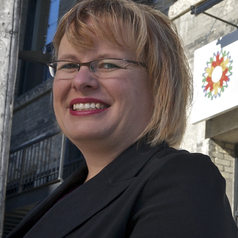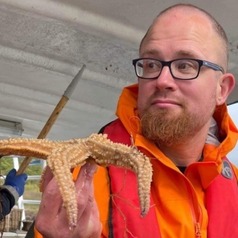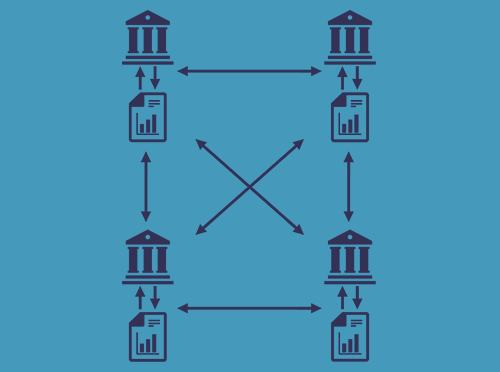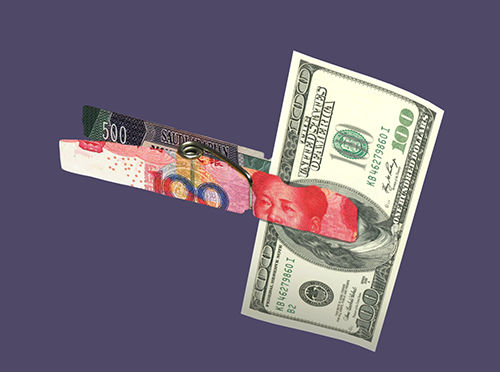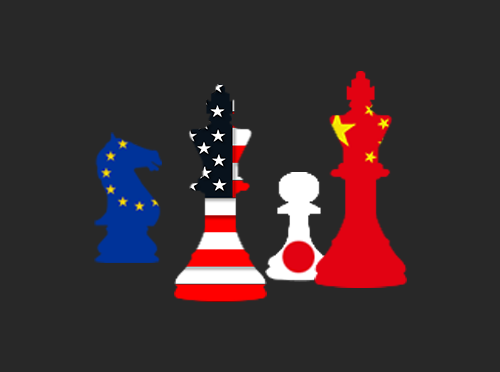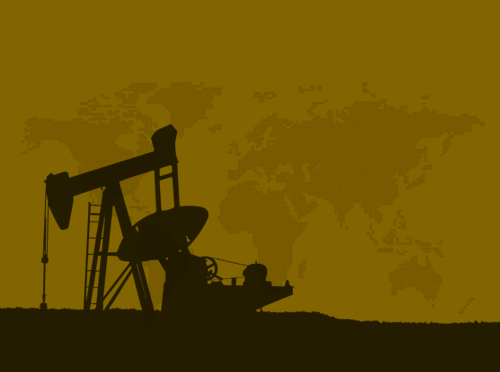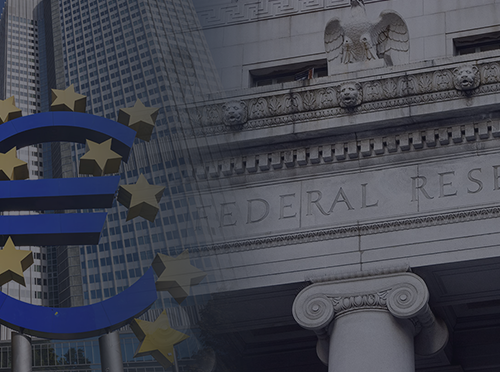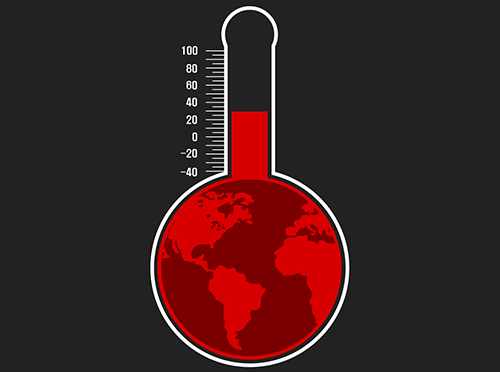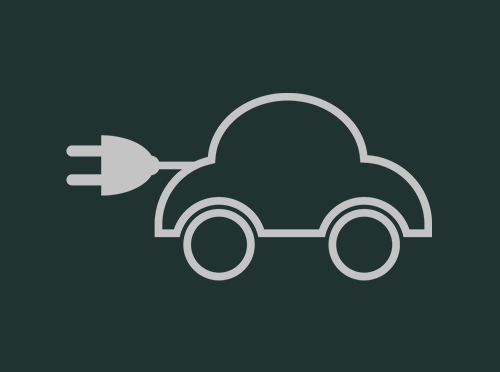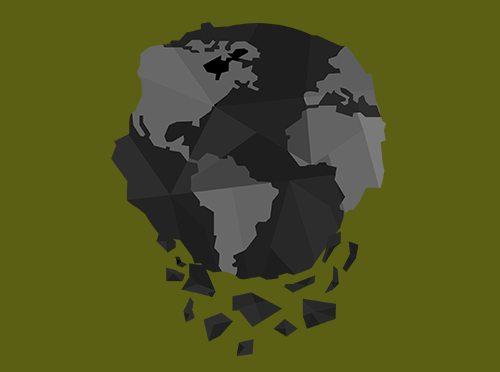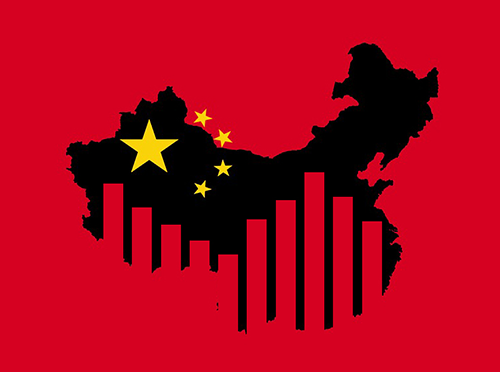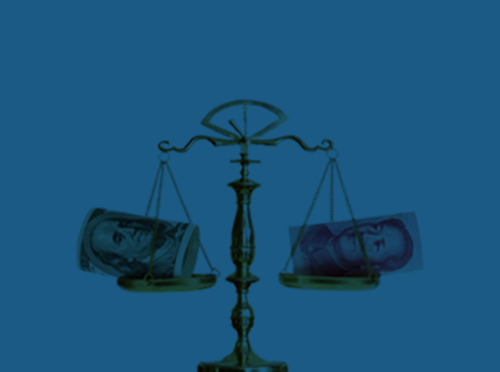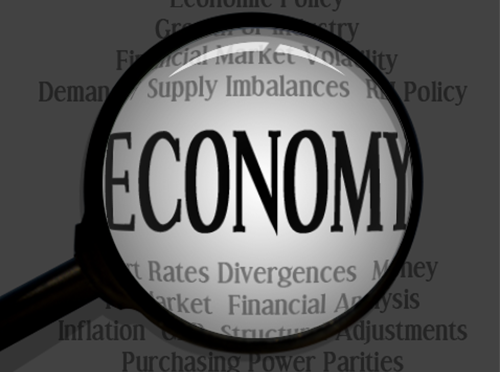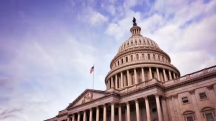Why Trump’s new pick for Fed chair hit gold and silver markets – for good reasons
By Henry Maher
After months of speculation, US President Donald Trump confirmed he will be nominating Kevin Warsh as the next chair of the US Federal Reserve. The appointment has been closely watched in the context of Trumps ongoing...
Rewardy Wallet and 1inch Collaborate to Simplify Multi-Chain DeFi Swaps with Native Token Gas Payments
By TokenPost Team
Rewardy Wallet has announced a new integration with the 1inch Swap API, marking a significant step toward streamlining user experiences in decentralized finance (DeFi). The update, which went live on January 22, 2026,...
Rewardy Wallet Integrates 1inch Swap API to Enable Gasless, Optimized Token Swaps
By TokenPost Team
Rewardy Wallet has announced the integration of the 1inch Swap API, bringing optimized, gasless token swaps to users across major EVM-compatible blockchain networks. Through the integration, Rewardy Wallet users can swap...
Tabletop particle accelerator could transform medicine and materials science
By Carsten Welsch
A particle accelerator that produces intense X-rays could be squeezed into a device that fits on a table, my colleagues and I have found in a new research project. The way that intense X-rays are currently produced is...
Yes, there is an AI investment bubble – here are three scenarios for how it could end
By Sergi Basco
Booms and busts are a recurring feature of modern economics, but when an assets value becomes overinflated, a boom quickly becomes a bubble. The two most recent major bubble episodes were the dot-com bubble in the United...
Is space worth the cost? Accounting experts say its value can’t be found in spreadsheets
By Basil Tucker
Since the early days of human space exploration, the endeavour has been haunted by a very good question: why spend so much on space when there are so many urgent problems here on Earth? Its a valid concern, and one that...
The ghost of Robodebt – Federal Court rules billions of dollars in welfare debts must be recalculated
By Christopher Rudge
A recent landmark court decision could have significant ramifications for several million social security recipients. The ruling means the federal government will need to recalculate more than A$4 billion in debts owed to...
Want to save yourself from super scams and dodgy financial advice? Ask these questions
By Angelique Nadia Sweetman McInnes
Is there anything you can do to protect your superannuation from dodgy providers or questionable financial advice? And if someone rings you out of the blue and tempts you with a better return on your savings what should...
How Marvel’s Fantastic Four discovered the human in the superhuman
By J. Andrew Deman
The Fantastic Four: First Steps is the second cinematic reboot of the Fantastic Four franchise, and theres a lot riding on this film. While cinema-goers have responded enthusiastically to many of the films in the Marvel...
There’s enough natural hydrogen in the Earth’s crust to help power the green energy transition
By Barbara Sherwood Lollar Et Al
Since their formation billions of years ago, the oldest parts of the Earths continental rocks have generated natural hydrogen in massive amounts. Some of this hydrogen may have accumulated within accessible traps and...
AI will soon be able to audit all published research – what will that mean for public trust in science?
By Alexander Kaurov Et Al
Self-correction is fundamental to science. One of its most important forms is peer review, when anonymous experts scrutinise research before it is published. This helps safeguard the accuracy of the written record. Yet...
How the world’s nuclear watchdog monitors facilities around the world – and what it means that Iran kicked it out
By Anna Erickson
This travel case holds a toolkit containing equipment for inspecting nuclear facilities. Dean Calma/IAEA, CC BY What happens when a country seeks to develop a peaceful nuclear energy program? Every peaceful program starts...
Big Beautiful Bill: Why Donald Trump is obsessed with the manipulative language of size
By Andy Curtis
Small is Beautiful: A Study of Economics as if People Mattered is the title of the highly influential 1973 book written by the German-born British economist E.F. Schumacher. The book marked its 50th anniversary in 2023,...
American science is in crisis. It’s a great opportunity for Australia to snap up top scientists
By Kylie Walker
Science in the United States in in trouble. The National Science Foundation, a key research funding agency, has suffered devastating funding cuts under the current administration. Critics say the cuts risk losing an entire...
Some young people sexually abuse. Here’s how to reduce reoffending by up to 90%
By Jesse Cale Et Al
When we think about whos responsible for sexual abuse in Australia, we usually picture adults. But young people are responsible for a substantial proportion of sexual offences nationwide. Up to a third of all child sexual...
Can a pizza box go in the yellow bin – or not? An expert answers this and other messy recycling questions
By Pooria Pasbakhsh
Have you ever gone to toss something into the recycling bin a jam jar, a pizza box, a takeaway container encrusted with yesterdays lunch and wondered if youre doing it right? Perhaps you asked yourself: should I scrub...
AI is driving down the price of knowledge – universities have to rethink what they offer
By Patrick Dodd
For a long time, universities worked off a simple idea: knowledge was scarce. You paid for tuition, showed up to lectures, completed assignments and eventually earned a credential. That process did two things: it gave you...
As Netanyahu meets Trump in Washington, what hope for peace in Gaza? Expert Q&A
By Jonathan Este
The US government remains upbeat about the prospects for at least a ceasefire in Gaza, according to the latest reports from Washington, where the Israeli prime minister, Benjamin Netanyahu, has been meeting the US...
How to support someone who is grieving: five research-backed strategies
By Lucy Poxon
When someone we care about is grieving the loss of a loved one, our natural instinct is to ease their pain. But when words feel clumsy and gestures fall short, it can be hard to know how to help. Drawing on both my...
Brics is sliding towards irrelevance – the Rio summit made that clear
By Amalendu Misra
The Brics group of nations has just concluded its 17th annual summit in the Brazilian city of Rio de Janeiro. But, despite member states adopting a long list of commitments covering global governance, finance, health, AI...
Lost in space: MethaneSat failed just as NZ was to take over mission control – here’s what we need to know now
By Nicholas Rattenbury
This week’s announcement of the loss of a methane-detecting satellite, just days before New Zealand was meant to take over mission control, is a blow to the country’s space research sector. New Zealand invested NZ$29...
NHS ten-year plan for England: what’s in it and what’s needed to make it work
By Judith Smith
The UK government has published its eagerly awaited ten-year health plan for England, setting out how billions of pounds in NHS funding will be used to transform healthcare delivery across the country. As anticipated, the...
Conservatives notch 2 victories in their fight to deny Planned Parenthood federal funding through Medicaid
By Rachel Rebouche
Conservatives have won two important battles in their decades-long campaign against Planned Parenthood, a network of affiliated clinics that are the largest provider of reproductive health services in the U.S. One of these...
One ‘big, beautiful’ reason why Republicans in Congress just can’t quit Donald Trump
By Charlie Hunt
As the U.S. House of Representatives voted to approve President Donald Trump’s sweeping domestic tax and spending package, many critics are wondering how the president retained the loyalty of so many congressional...
Astronomers have discovered another puzzling interstellar object − this third one is big, bright and fast
By Darryl Z. Seligman
Astronomers manning an asteroid warning system caught a glimpse of a large, bright object zipping through the solar system late on July 1, 2025. The objects potentially interstellar origins excited scientists across the...
6 simple questions to tell if a ‘finfluencer’ is more flash than cash
By Dimitrios Salampasis
Images of flashy sports cars. Lavish lifestyle shots. These are just some of the red flags consumers should watch out for when they turn to social media for financial advice. Consumers should not believe everything they...
NZ will soon have no real interisland rail-ferry link – why are we so bad at infrastructure planning?
By Timothy Welch
Another week, another Cook Strait ferry breakdown. As the winter maintenance season approaches and the Aratere prepares for its final months of service, New Zealand faces a self-imposed crisis. The government has spent...
War, politics and religion shape wildlife evolution in cities
By Elizabeth Carlen
People often consider evolution to be a process that occurs in nature in the background of human society. But evolution is not separate from human beings. In fact, human cultural practices can influence evolution in...
Chatbots are on the rise, but customers still trust human agents more
By Vivek Astvansh
Customers contact companies regularly to purchase products and services, inquire about orders, make payments and request returns. Until recently, the most common way for customers to contact companies was through phone...
What makes a good football coach? The reality behind the myths
By Alan McKay
With Womens Euro 2025 underway, attention is turning not just to the players hoping for glory, but to the head coaches tasked with leading them. These include Englands Sarina Wiegman, who guided the Netherlands to Euro...
A brief history of the slogan T-shirt
By Liv Auckland
You probably have a drawer full of T-shirts. Theyre comfy, easy to style, cheap and ubiquitous. But the T-shirt is anything but basic. For 70 years, theyve been worn as a tool for self-expression, rebellion and protest....
The pandemic is still disrupting young people’s careers
By Sviatlana Kroitar
Unlike previous economic downturns, the COVID pandemic created a crisis that disrupted both education and employment, abruptly halting young peoples emerging careers and clouding their hopes for the future. It doubly...
US Supreme Court ponders the balance of power – and sides with President Trump
By John Stanton
Since his second inauguration in January, Donald Trump has issued more than 160 executive orders. These orders permit the US president to make directives concerning the workings of the federal government without the need...
A new Gaza ceasefire deal is on the table – will this time be different?
By Julie M. Norman
The US president, Donald Trump, says that Israel has agreed to terms for a 60-day ceasefire in Gaza. If that sounds familiar, it is. The idea of a two-month truce has been discussed since the collapse of the last...
What MAGA means to Americans
By Jesse Rhodes Et Al
A decade ago, Donald Trump descended the golden escalator at Trump Tower in New York City and ignited a political movement that has reshaped American politics. In a memorable turn of phrase, Trump promised supporters of...
Capitalism and democracy are weakening – reviving the idea of ‘calling’ can help to repair them
By Valerie L. Myers
Ask someone what a calling is, and theyll probably say something like doing work you love. But as a management professor who has spent two decades researching the history and impact of calling, Ive found its much more than...
Turkey is stepping up its influence in west Africa – what’s behind its bid for soft power
By Issouf Binaté
Turkey is stepping up its influence in west Africa as the geopolitical and economic landscape in the region shifts. In Senegal, the state-owned Turkish Petroleum Corporation has entered a key partnership in the oil and gas...
How Internet of Things devices affect your privacy – even when they’re not yours
By David Sella-Villa
The Internet of Things, which includes wearables, appliances and cars, is collecting an increasing amount of information about you. lupengyu/Moment via Getty Images Some unusual witnesses helped convict Alex Murdaugh of...
Supreme Court rules Trump can rapidly deport immigrants to Libya, South Sudan and other countries they aren’t from
By Eleanor Paynter
Internally displaced people walk along a street in Juba, South Sudan, on Feb. 13, 2025. Brian Inganga/AP Photos For the past several months, the Trump administration has been trying to deport immigrants to countries they...
Charitable giving grew to $593B in 2024, propelled by a strengthening US economy and a booming stock market
By Jon Bergdoll Et Al
Paul Newman, the late actor and philanthropist, co-founded Camp Boggy Creek, which children with serious illnesses and their families attend for free. AP Photo/Phelan M. Ebenhack U.S. charitable giving increased 3.3% to...
Iran and Israel agree to a fragile ceasefire. One factor could be crucial to it sticking
By Ali Mamouri
Amir Levy/Getty Images After 12 days of war, US President Donald Trump has announced a ceasefire between Israel and Iran that would bring to an end the most dramatic, direct conflict between the two nations in decades....
The war won’t end Iran’s nuclear program – it will drive it underground, following North Korea’s model
By Anthony Burke
The United States and Israels strikes on Iran are concerning, and not just for the questionable legal justifications provided by both governments. Even if their attacks cause severe damage to Irans nuclear facilities, this...
Why have so few atrocities ever been recognised as genocide?
By James Sweeney
An intense argument is raging over whether what has been happening in Gaza since October 2023 is an act of genocide. It is the subject of a case being heard in the International Court of Justice (ICJ) in which South Africa...
The American mass exodus to Canada amid Trump 2.0 has yet to materialize
By Lori Wilkinson
In February 2025, the New Republic, reported there were a growing number of Americans who wanted to leave the country following the election of Donald Trump. Canadian reports backed up the assertion, particularly the news...
Nato faces a make-or-break decision about how to protect Europe and its future in next few weeks
By Amelia Hadfield
Nato is facing a pivotal moment in its history. Ahead of its June 24-25 summit in The Hague, Nato is weighing up whether it can truly continue to count on US support (and membership), whether it will become a European-only...
Mohamed Lakhdar-Hamina put African cinema on the map with his bold, political films about Algeria
By Nabil Boudraa
Legendary Algerian film-maker Mohamed Lakhdar-Hamina has passed away at the age of 91. He is most commonly remembered as the first (and only) African to win the coveted Palme dOr prize at the Cannes Film Festival for his...
Why are the US and Israel not on the same page over how to deal with Iran? Expert Q&A
By Scott Lucas
The US president, Donald Trump, claimed on May 28 to have personally stopped Israel from attacking Irans nuclear facilities. When asked if hed intervened during a phone call with the Israeli prime minister, Benjamin...
Rise of the Zombie Bugs takes readers on a jaw-dropping tour of the parasite world
By Alex Dittrich
Rise of the Zombie Bugs, by Mindy Weisberger, is a non-fiction book that borrows from popular culture to make one of the most complex and grisly interactions in the animal kingdom accessible to the reader. From fungi and...
Champions League final 2025: a battle for glory against a backdrop of money and fashion
By Simon Chadwick Et Al
The 2025 mens Champions League final will end in triumph for either Paris Saint-Germain or Inter Milan. And whichever side wins, Uefa will no doubt claim that the tournaments new format, involving more teams, more games...
Pulp are back and more wistfully Britpop than before
By Mark RJ Higgins
Ah, the 90s. A decade when the future seemed bright, technological modernity was pregnant with promise, and Britannia was revelling in a rediscovered sense of cool. The pop-culture emblem of this was Britpop. After the...




















































